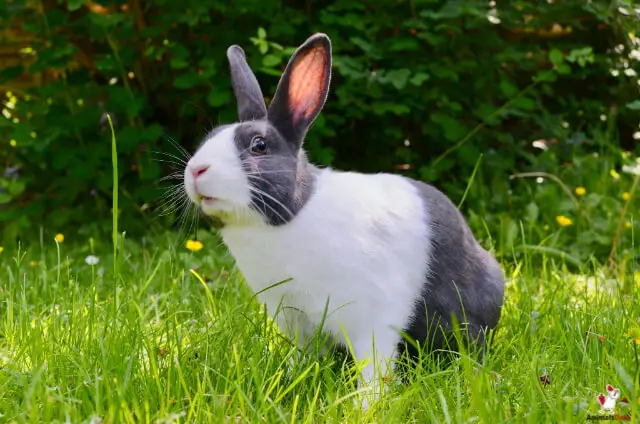Most creatures that have elaborate alimentary canals, like mammals, usually experience farting or gassing out. So, yes – rabbits do fart. Actually, it happens a lot in rabbits that it does with humans. This is because gassing out is critical to their digestive well-being.
But don’t stick out your ear near the rabbit’s bum, expecting it to blow your eardrums. Many people rarely hear the sound of the rabbit’s farting. However, you won’t miss picking it out several times.
Before you blurt out your laugh, you should know that passing gas is as normal as passing fecal matter. The problem comes when gas builds up in the rabbit’s system as it could be fatal. This section is going to open you up to some nitty-gritty details that connect farting and rabbits. In the end, you will know the much that you can do to ensure that your bunny is both healthy and happy.
The Gassy Details
Rabbits fart for the same reasons as all the other fart-able (ha-ha) creatures. Since digestion points to many chemical reactions, some of the products are gases. For rabbits, the reactions happen in the digestive part called the cecum. There, food-digesting bacteria break down the ingested food products, and then the gases are formed as by-products. The cecum becomes the site of gas build-up.
After a ball of gas is formed, it leaves the rabbit’s system through the rabbit hole.
Can I Smell Or Hear When A Rabbit Farts?
The fart that a rabbit produces is mostly scentless and silent, at least to human noses and ears. As mentioned in the kicker, it is rare for you to perceive that your rabbit has broken the wind. If you make a quick run-through online forums, you will pick out some stories from rabbit owners who’ve smelt and heard it all. Some descriptions say that the fart is like a little air squeak from a balloon. Funny and quite believable, right? I mean, you wouldn’t expect anything explosive, or would you?
Rabbits And Farting: Gas Build Up
Silent, scentless farts are nowhere near harmful. They are a normal part of the digestive process. But some ups and down in farting should raise the alarm. When a rabbit does not fart enough, it is assumed that the gas which is supposed to be coming out is stuck somewhere within the system. That situation is called gas build-up and can trigger more severe GI stasis and stomach bloat issues.
So, what causes gas build-up? Well, some sources do note that lack of exercise and stress can influence the digestive atmosphere. Also, it could be that the rabbit’s body is giving out more gases than it should. With such an imbalance, the only explanation could be in the details – that’s where the devil is.
Is There Food Responsible For Too Much Gas?
Whether you’re a nutritional expert or not, you know that food plays a significant role in farting. For example, if you eat many boiled beans, your system will be passing gas like nobody’s business. Other foods like broccoli, which are suitable for humans, may bring gas troubles to the rabbit – may.
The biggest culprits in the gas investigation are mostly legumes and grains. Anything that has high starch and sugar levels will cause such GI problems; this means that you should avoid giving such foods in high quantities. And don’t let those sweet rabbit eyes fool you; do what you can to keep the bunny healthy and free from excessive wind breaking.
How Will I Know My Rabbit Has Gas Building Up In Its System?
First, you should know that the experience is nothing near pleasant. Your rabbit will feel something between pain and discomfort, and so you should jump in before anything goes out of control. Here are some of the tabulated signs to look out for when you suspect gas build-up issues with your rabbit:
| Do Rabbits Fart? | |
| Sign | Note |
| Gas Bubbling | Turn the rabbit gently to its side and put your ear on its belly. You’ll hear everything. |
| Hunched sitting position | This is the rabbit’s most comfortable position because it doesn’t disturb its belly’s peace. |
| Stationary; reluctant to move | If your bunny is inactive at a time when it is usually active, there’s some gas building up (or some other bad news). |
| Lack of appetite | Gas build-ups give the mind the impression that the stomach is full. So, the rabbit will not accept its favorite treats or any type of food. |
| No poop detected | The rabbit won’t pass any fecal matter in a significant amount of time. This sign is severe and will need you to talk to a special rabbit vet. |
Assisting A Gassed-Up Rabbit
Since you now know the signs to look out for, you are in a better place to help a rabbit with its gas issues. If the methods captured in this part do not work, you may be dealing with a severe problem that may require you to get to the vet. But before things get too serious, check these methods out:
Motivate The Rabbit To Move Around
When you encourage movement, you may have an impact on the gas build-up. Movement increases homeostatic action, which activates the digestive tract. When that happens, the gas moves out slowly but swiftly. If your rabbit doesn’t feel uncomfortable or painful, you can get it to move around.
If the rabbit is in a cage, remove it. This will automatically motivate it to jump around, exerting the gas from the tract and through its backside. During this entire time, ensure that you keep an eye on the rat to avoid it from hopping off.
Massage The Rabbit’s Stomach
Not only is a massage therapeutic, but it also helps to alleviate gas pain. What you need to do is slide your hand under the bunny’s belly. Then, start moving it back, forth, up, and down. As you do that, ensure that you remain gentle and avoid injuring the dog. You will see the rabbit’s condition improve, and also, you may pick out the gas’s smell. You’ll be one of the few people. Ha-ha.
Use The Anti-Foaming Agent, Simethicone
This is a drug that the HRS (House Rabbit Society) recommends. Pediatric Simethicone is a medicine used for babies, and it helps them to pass gas. If you choose this alternative, you may need a dropper or a syringe.
Once you’re ready (with the medication and the delivery tool), feed the rabbit around 1 ml every hour for not more than three hours.
Outside Gas Ups: Stomach Bloating
Bloating occurs when the intestines produce a lot of gas which gets stuck in the stomach. When that happens, the rabbit’s stomach will start swelling.
You should know that this condition is incredibly dangerous and so it needs immediate attention. Get to the vet quickly so that they deliver some anti-bloating meds. Once you go back home, ensure that you give the rabbit a balanced diet, mostly consisting of grass-based hay. This will help the rabbit recovery fully and go back to a gas-less state.
Outside Gas Ups: GI Stasis
With GI stasis, the bunny’s system stops moving or starts slowing down. Among rabbits, this is a prevalent issue that can be triggered by any, some, or all of these issues: stress, lack of exercise, or bad diet.
If the rabbit’s GI stasis doesn’t get quick and immediate attention, the dog may die. So, you need to get special vet help, especially if the bunny has not passed any fecal matter for more than 9 hours.
Final Words
If your bunny suffers severe gas issues, the best thing to do is visiting a vet. This is because digestive problems can be too painful for the rabbit to bear. Do not stay and wait for your pet rabbit to pass gas out – you may be dealing with an obstruction you can’t handle.
Ensure that you give your rabbit the best diet possible. For a herbivore of the Lagomorpha order, you need to produce fresh blades of hay every morning. If you want to add some veggies and fruits, ensure that they are safe and always give them moderately.

I’m Christopher Benjamin, a dedicated Animal Nutritionist at Ethos Veterinary Health with a Bachelor of Science in Animal Science from Michigan State University. My lifelong passion for animals led me to establish AnimalsData.Com. Here, I share expert advice, educational resources, and inspiring stories to empower fellow pet lovers worldwide. Join our community as we celebrate the beauty and diversity of our beloved animal companions!
